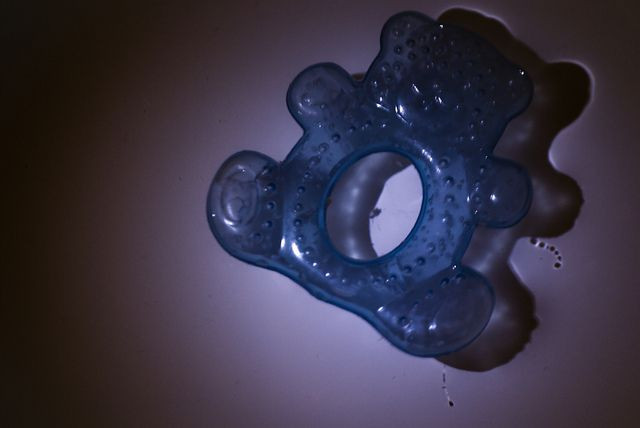FDA Pushes Use Of Teething Rings For Babies After Issuing Warning Over Serious Brain Injury Risks Linked To Lidocaine, Numbing Gel

The Food and Drug Administration announced Thursday its formal warning of the use of lidocaine, a topical numbing agent, on teething infants. The FDA instead sided with the American Academy of Pediatrics’ current recommendations, which involve using a chilled teething ring to dull the pain.
Under the new stipulations, the FDA will be issuing a boxed warning on all products whose active ingredient is a two percent viscous lidocaine solution. Parents who use the numbing gel to reduce their child’s discomfort risk an accidental overdose, raising the chance he or she will swallow portions of the gel. In such an event, the child could risk seizures, brain injury, or heart complications.
The FDA says it arrived at the decision after reviewing 22 case reports of serious adverse reactions, including deaths, among infants and young children 5 months to 3 and a half years old who were given the local anesthetic. Reasons for the gel’s administration most often involved cases of stomatitis — an inflamed and sore mouth — or accidental ingestions. For babies who are teething, the FDA recommends parents keep a teething ring chilled in the refrigerator and use light pressure to massage the child’s gums.
The latest warning comes as an extension of prior recommendations involving over-the-counter topical benzocaine. Used for similar purposes, benzocaine runs the risk of a rare but serious condition, called methemoglobinemia. It occurs when levels of methemoglobin reach dangerously high levels and the cells can no longer deliver oxygen. OTC benzocaine products are sold under the brand names: Anbesol, Hurricaine, Orajel, Baby Orajel, Orabase, and various store brands.
Teething typically occurs between the first 3 to 12 months of a baby’s life, when the child’s baby teeth begin to push through his or her gums. Though teething is often referred to as “cutting teeth,” the gums are never actually cut. Instead, they produce a series of chemicals that strategically kill certain cells to make room for incoming teeth. Total “tooth eruption,” as it's formally known, can take several years to complete.
FDA representatives could not immediately comment on which companies’ products will need to carry the boxed warnings, Reuters reported.



























